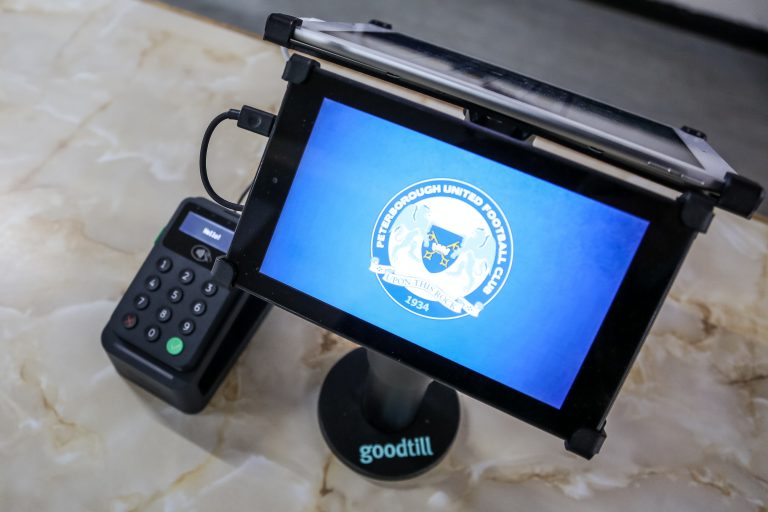From Surviving to Thriving: Utilising EPOS Technology to Navigate Pandemic Recovery

As we step out of lockdown and into a restructured tier system, small businesses around the UK are once again being forced to adapt. Will EPOS offer much-needed agility in these turbulent times?
2020 has been unpredictable at best, and business owners and their staff – particularly in retail and hospitality – have spent the year walking into work, not knowing where they will be the following month. Until now, these organisations have had to jump through hoops in order to survive COVID-19, and technology investment has played a pivotal role.
However, with the new year on the horizon, the narrative seems to be changing. Whereas before, many of these organisations were relying on investment in technology to survive, now the same technology is helping them to thrive.
Locally and nationally, proven and reliable models of sales, service and fulfilment that have stood the test of time, recession and the pressure from online disruption have been thrown into disarray. Despite the pressure, thousands of businesses all over the world have adapted with remarkable and admirable success, not only allowing them to continue trading but also to open up new lines of business and customer service options.
For many, adapting and broadening their use of technology has played a vital role in their wider efforts to meet these challenges head-on. For instance, by implementing modern Electronic Point of Sale (EPOS) systems, businesses have been able to boost both transaction speeds and values per transaction. But in a much wider sense, enabling customers to pay remotely, implementing online ordering and fulfillment or improving communication and marketing have become significantly more important this year than at any other time.
In an environment where health is of the utmost importance, the businesses that have been most successful have been those who have minimised the safety risks facing their customers. While all employees and staff should be wearing masks and offering out hand sanitiser at any opportunity, making the customer feel at ease is the most important aspect. This is where an online presence has thrived. Through offerings such as click and collect, delivery, Buy Online Pick Up in Store (BOPIS) or even table ordering, customers can approach a business how they feel most comfortable, and this approach has proven an invaluable asset for many.
Read more: Predictions for 2021: Asana, Code First Girls, Fiverr & More
But this isn’t just about the ability of technology providers to offer these services, it’s also about the speed of innovation across the board, which has been hugely accelerated by the pandemic. If the COVID-19 crisis is going to deliver a positive legacy for these key sectors, tech-led innovation is likely to offer lasting benefits to businesses and their customers alike.
But how are retailers and hospitality businesses using technology and how will customers see long-term, positive change in their experiences?
Turning to automation
Often seen as a ‘big ticket’ technology investment more suited to larger businesses with complex processes and infrastructure, automating key processes is now an option for every business, irrespective of size. For instance, any company can apply today’s cloud-based services to automate everything from key POS functions and the collection and analysis of customer data, to stock management and the delivery of receipts.
Indeed, organisations can leverage a range of features that can lower costs and automate internal processes such as stock management, waste management and clock in/out. In addition, the technology can go beyond replacing routine day-to-day tasks to greatly help keep customers safe as we continue to battle through the pandemic.
The impact for business and customers alike can be dramatic. Small business owners increasingly understand that targeted, intelligent automation can free them and their staff to focus more on their business proposition, customer experience and service. What the customers see is a better, more targeted offering that can provide what they need when and how they need it.
Smarter insights through data and analytics
Similarly, collecting and analysing customer data is no longer the preserve of large businesses with deep pockets. Businesses of any size can work with technology partners to implement a comprehensive set of easily accessible reports on sales, staff and product performance and stock control. With this real-time and historic data at their fingertips, they can quickly access key business figures, learn how turnover and profits have changed over time and make smarter and quicker decisions based on smart data.
The levels of actionable insight can be transformative, allowing owners to manage a full list of their registered customers, work out who are their best and irregular clients and get inspiration for marketing marketing campaigns based on reliable and tailored data.

Manoeuvring in line with demand
For those businesses most directly affected by the pandemic and periods of lockdown, agility has become critical to survival. For example, in hospitality, retail and leisure, a range of tech-enabled innovations, such as in-person ordering and payment systems, have given business owners the flexibility to welcome customers into their shops and restaurants in the key periods between tighter lockdown restrictions.
These trends are widespread and growing: the arrival of truly contactless payment services, for instance, where hospitality customers can settle their bill from their table and without additional contact with staff, was largely unheard of before the pandemic, but is now seen by many as a useful option for the long term. Businesses across the economy have also significantly broadened their online shopping, ordering and delivery capabilities by adopting cloud-based services that allow them to quickly adapt to new circumstances.
The bottom line is that businesses that previously viewed themselves as ‘traditional’ exponents of face-to-face customer contact and service now have an omnichannel model, where they can effectively mix digital experiences with their established High Street or face-to-face presence.
The changes made this year are here to stay. Initial technology deployments may have been made to cut costs or ease the burden on employees through the pandemic. However, the reality for many now is that these organisations are now in a position to reap long term rewards from seemingly short term investments.
With the introduction of new technology comes a level of sustainability: improved and more efficient processes at lower costs, more accurate insights on data and analytics, and in turn much stronger customer service. Technology has been an enabler throughout COVID-19, but it’s down to these organisations to continue their pursuit of the most innovative solutions available, or risk being left behind by the competition.
Find out more about Goodtill here: www.thegoodtill.com
